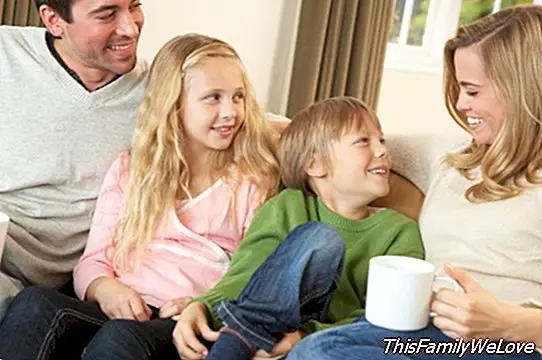Bilingualism at home reduces academic learning by 7 years

Speaking at home another language than usual is a privilege for children that accelerates learning. The results of the European Study of Linguistic Competence in Foreign Language (ESCL) show that bilingualism is perfected and improved whether children use it habitually in their homes or if one of the parents has another mother tongue.
It is no longer strictly necessary for one parent to be a foreigner to speak another language at home. Now, parents can familiarize the child with another language by talking to each other and playing with language applications for children with which they can favor learning another language in their own family environment.
5 advantages to favor bilingualism in children
Several studies claim that learning languages in the family environment is the best way to achieve a perfect linguistic immersion. Marieta Viedma, co-founder of Monkimun, affirms that "to be considered that a child is fluent in a foreign language, you must use at least 20 % of the time said language and, for this, it is essential that the whole family participates in the learning ". Also, remember that "there are studies that affirm that a child, with a very basic level of English, would take 7 years to master it correctly, a time that can be reduced if you practice this language at home".
1. Talking at home another language leads to imitation on the part of the child, eliminating the feeling of obligation.
2. Child who handles a foreign language at home may reduce 7 years that it would take to use that academic language correctly.
3. Practicing another language in the home suppresses the feeling of "compulsory" and encourages the child to use it and learn it.
4. Family use of a foreign language allows creating a learning environment natural that facilitates the subsequent recognition in class.
5. Parents and children can find in language learning a space of understanding and complicity.
Recommendations for learning English as a family
1. Imitation.Since they are very young, children learn by imitation, and take as reference everything they see in their family environment. The recommendation is to repeat and name what we do so that children can relate and speak. Viedma assures that "by doing this the contact with the new language would become contagious and the child would find the frequent use of expressions like 'Nice to see you' or 'Have a great day' fun."
2. Naturalness Speaking English at home suppresses the "compulsory" feeling that comes with learning another language in the academic field, since it is the need and desire to interact with their environment that induces the child to use it to be understood and cared for . "The result will depend on the naturalness and tranquility with which the new language is introduced. The child feels the need to know the language to advance in each lesson and continue having fun" explains Viedma.
3. Ease for learning. At home you learn and in the classroom you consolidate. Contrary to what usually happens, school or classes would become a place to put into practice what they learned at home through their parents, applications, television programs or films. Thus, the child is immersed in a natural learning and favors the subsequent recognition in class to identify something that has been seen or heard before. Viedma stresses that "if the child is introduced to bilingualism in a natural way, the child ends up adapting their brain schemes to this process, facilitating their learning".
4. Contextualization. The vocabulary that children learn at home is always contextualized so that the child develops the ability to think directly in the foreign language, fighting the tendency that sometimes exists to translate the received message into their own language.
Practicing languages at home is a good method to strengthen ties, creating an intimate space of understanding and complicity between parents and children. That is why it is fundamental that the whole family is involved in the teaching of another language "because the higher the children's level of linguistic immersion in the language they are learning, the better their understanding of it and the faster they will acquire the vocabulary and language standards "concludes Marieta Viedma.
Marisol Nuevo Espín
Advice: Marieta Viedma, co-founder of Monkimun.




